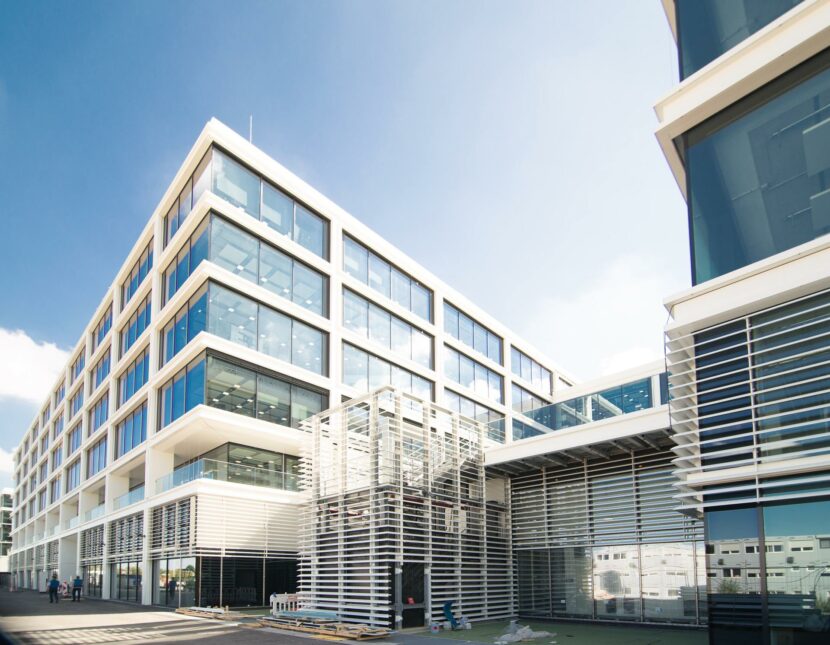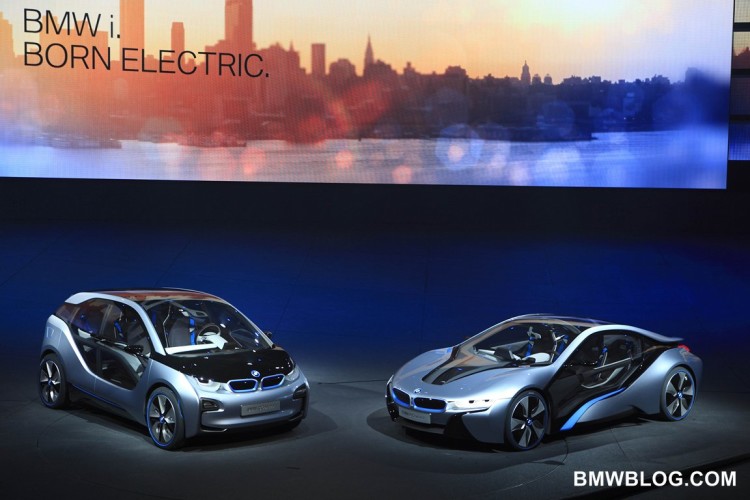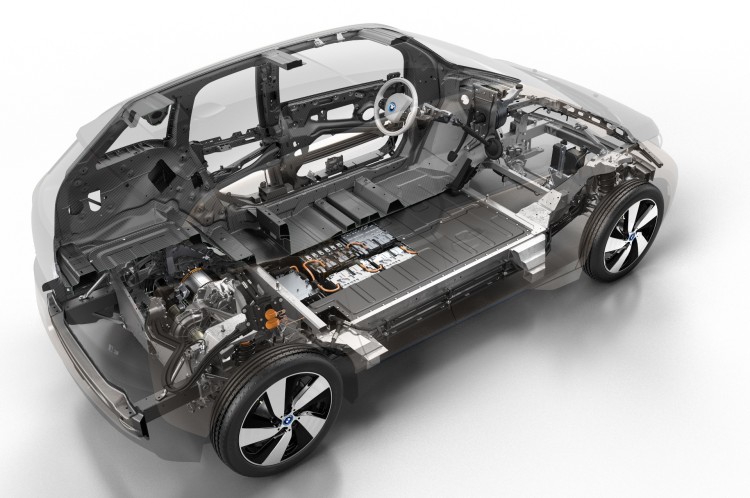The “Neue Klasse” secured BMW’s future. From its introduction in 1961 by way of the early Nineteen Seventies the corporate’s highway to enlargement was paved by Neue Klasse gross sales. The acquisition of Glas in 1966 ultimately enabled BMW to compete with Mercedes Benz because the 5, 6, and seven collection fashions had been in-built Dingolfing. Quandt’s hand picked CEO, Eberhard von Kuhnheim, led BMW from uncertainty to profitability. His management solid the BMW that we all know. BMW’s ensuing monetary stability allowed it to maintain the lights on and flesh out their styling, manufacturing, and analysis & growth departments.
Rivals and Realignment: BMW’s Place in Postwar Germany
The Sixties noticed the dissolution of Borgward’s empire and Daimler Benz’ sale of Auto Union to VW. Their “Beetle” had develop into the very best promoting automotive in historical past, surpassing the gross sales of Ford’s iconic Mannequin T. The tip of the Sixties would additionally see VW purchase NSU – maker of the elegantly styled Ro80, which was sadly saddled with a removed from perfected Wankel rotary engine.
Nonetheless, VW discovered itself, on the finish of the Sixties, in a predicament as demand for the superannuated Beetle waned. However the just lately acquired styling division from NSU would work to VW’s benefit once they moved on from the Beetle. VW additionally consolidated its Auto Union and NSU makes underneath the Audi model – which might ultimately develop into a fierce competitor for BMW. (And the designer of the bottom breaking NSU Ro80, Claus Luthe, would later develop into BMW’s styling division director.)
Mercedes Benz’s standing as an aspirational model suffered because the post-war technology rejected the totems of their mother and father. BMW’s sporting picture was effectively timed for the approaching of age of that technology who, even within the midst of the Chilly Warfare, had been affluent. And the American market was ripe for the selecting, with the rising “Child Boomers” exhibiting heightened model consciousness.
Laying the Basis: FIZ and BMW’s Analysis Revolution
Subsequently the US market was booming for BMW within the Eighties. Then, in the midst of the last decade, BMW shaped their Analysis & Improvement group. In help of that group BMW constructed the Forschungs und Innovation Zentrum, the FIZ, in north Munich – close to the previous works.
The FIZ allowed all events concerned in bringing a automotive to market the chance to plan and execute the event collectively. BMW’s mannequin of mixing styling, engineering, manufacturing, and advertising and marketing disciplines collectively underneath one roof would develop into the mannequin for the business. The FIZ offered the perfect atmosphere to discover new applied sciences and options to foreseeable regulatory points.
Emissions, Laws, and Early EV Experiments
Within the Nineteen Seventies rules concerning tailpipe emissions started to be launched in Europe and North America. The California Air Assets Board (CARB) was tasked to seek out options to air high quality issues going through the state. The invoice that created CARB was signed by then California governor, Ronald Reagan, and the preliminary focus was on decreasing smog within the Los Angeles basin. Producers initially struggled to fulfill the emissions and gasoline financial system rules (the ‘eta’ engined BMW 528e, for instance – attention-grabbing however unloved expertise).
Earlier than lengthy local weather change would develop into a regulatory concern; it was within the Nineteen Seventies that the media started reporting on local weather. The problem had attracted lecturers and ultimately authorities companies consideration with a view in the direction of mitigating the influence of local weather change with further rules.
California promulgated a requirement in 1990 that producers should accumulate credit for promoting Zero Emissions Autos as a proportion of their complete gross sales. That led to electrical automobile experimentation, together with GM’s EV1 and BMW’s E1, each the Z11 and Z15 prototypes. Whereas BMW had constructed the electrical 1602e for the 1972 Olympic video games and, in 1975, the 325ix primarily based LS Electrical, these had been narrowly targeted tasks and never relevant within the new regulatory atmosphere.
The E1s (Z11 and Z15), nevertheless, had been sensible prototypes that BMW used to discover electrification for ‘metropolis’ automobiles. Neither the Z11 or Z15 had been quick, with a prime pace of round 80 mph, they usually had restricted vary, given battery expertise and what little area was out there to deal with the battery pack.
The E1 was BMW’s foray into figuring out learn how to construct electrical automobiles. Supplies, manufacturing processes, and efficiency had been explored. Whereas, mockingly, the Z11 prototype burned to a crisp, the Z15 survived and an eventual E2 prototype was constructed. All of those prototypes emphasised passenger area, in a small bundle, over efficiency. And BMW was reliant on exterior suppliers for electrical motors and batteries as they’d but to construct their very own electrical motors or battery packs.
Different fuels for autos had been additionally pursued. BMW constructed pure fuel and hydrogen fueled inner combustion engines within the Eighties. These included a number of 7 Collection Hydrogen prototypes and the 316g and 518g pure fuel fueled automobiles.
Different Powertrains and the Rise of Hybrids
Within the late Nineteen Nineties, early examples of hybrid autos got here to market, essentially the most notable of which was the Toyota Prius. Market demand for manufacturing hybrid autos was unknown and led one US primarily based Toyota advertising and marketing individual to surprise if they’d promote. That marketer’s fears proved to be unfounded because the Prius might now be a standalone sub model if Toyota so wished.
BMW’s dedication to scale back tailpipe emissions and enhance gasoline financial system led to the EfficientDynamics program. BMW constructed hybrid prototypes just like the E34 518iev within the center Nineteen Nineties, to discover hybrid expertise and market viability. Nonetheless, rising regulatory strain for extra ‘zero emissions autos’ would successfully demand that purely electrical autos be added to a producer’s choices.
MINI E and ActiveE: Actual-World EV Testing Begins
In 2009 launched the MINI E to a restricted variety of individuals in choose markets. These purely electrical powered MINIs had been leased with no alternative to buy the automobile on the finish of the lease time period. BMW adopted the MINI E challenge with the BMW ActiveE which was basically a BMW 1 Collection coupe with an electrical drivetrain. The identical lease situations had been enforced for the ‘Lively e’ and BMW used upkeep information and buyer suggestions to refine their strategy to electrical automobiles.
Whereas the MINI E and ActiveE had been in service, BMW was making ready for the following step of their electrified portfolio. In June, 2011, roughly two months earlier than the Frankfurt IAA present, BMW offered the i3 and i8 ideas to the worldwide automotive press (BMWBLOG had a sneak peek on the i3 chassis on the FIZ in April 2011).
Mission i Involves Life: The i3 and i8 Revolution
The i3 and i8 had been the primary outputs of BMW’s “Mission i”, their sub-brand targeted on electrification. Nonetheless they got here near not going into manufacturing, there was fairly an inner debate whether or not or to not deal with these as prototypes or to really press ahead with constructing them in quantity. It was a dangerous proposition, given the expertise required for manufacture, however the determination was made to proceed. And in 2013 the primary examples rolled off the Leipzig meeting line.
BMW utilized a powerful Excessive Strain Resin Switch Moulding course of to create the carbon fiber passenger compartment constructions for each the i3 and i8 together with a “fingers and palm” structure for manufacturing them on the Leipzig plant. The motors had been constructed by BMW and the battery packs had been assembled by BMW. BMW had deliberate on bringing an all-electric i5 to manufacturing however that product was cancelled in 2017. BMW did introduce the iX prototype in 2018 and introduced it to manufacturing. That they had crossed the road into full fledged electrical automobile manufacturing. Whereas these Mission I automobiles had been constructed on bespoke platforms, BMW pivoted to producing electrical automobile choices on the prevailing CLAR platform.
From Mission i to Neue Klasse: The Evolution of BMW EVs
The present BMW all-electric choices are constructed on present platforms utilizing the fifth-generation eDrive system which incorporates the electrical motor, transmission and energy electronics right into a single small centralized housing. BMW now affords the i4, i5, iX, and i7 together with the iX, iX1, iX, iX3, and iX2. MINI provided the MINI Cooper SE, Countryman SE, and MINI Aceman. Topping the charts is the Rolls Royce Spectre. Whereas these automobiles are constructed on BMW’s present platforms, the following iteration of BMW’s “Mission i” will introduce electrical autos on an all new platform, the following Neue Klasse.











